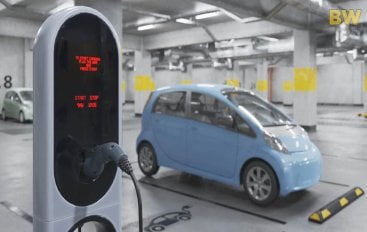What Are The Trends In EV Adoption, The State Of The Market & Growth Strategies?




Climate change is one of the greatest challenges that lie ahead of us and the transportation sector is creating major shifts to ensure that society at large is moving towards a sustainable drive. The increasing popularity of electric vehicles across the world but especially so in India has accelerated the scope of widening opportunities for green mobility and offers hope for a more sustainable future.
While we witness this fundamental transformation, it is important to note the trends that have thus encouraged the adoption of EVs in the country, its progress so far and the progress being made towards achieving a fully electrified transportation system.
A Jump in EV Sales
As India strives to reduce its carbon emissions, electric vehicles are becoming an increasingly attractive option. The EV market is experiencing a surge of growth and innovation, with new models and charging infrastructure being introduced at a rapid pace. The industry has observed a 1.5x jump in EV sales in the past year with approximately 2 lakh high-speed vehicles being registered in 2022-2023. This trend of majority sales in the high-speed vehicle category is attributed to the incredible government incentives offered to this segment.
Adoption by Retail Consumers
The EV industry started off with major B2B players contributing to the overall revenue growth. However, in the past few years, this has further progressed into retail customers adopting more Electric Vehicles, especially 2-wheelers.
One of the major contributors to this trend is the availability of an extended warranty on battery packers. This has relaxed retail customers as they no longer have to worry about getting a battery replacement. Moreover, the fact that the cost of ownership for EVs is ¼ of petrol bikes makes it an even more attractive option and has hence also seen an increase in premium EV scooters like Ola, Ather, Bajaj and TVS to name a few.
Government Incentives
The Indian government has been actively promoting the adoption of EVs through various incentives such as subsidies, tax breaks, and discounts on charging infrastructure. This includes using renewable energy sources to power production facilities and charging stations, as well as implementing sustainable practices in the manufacturing process.
Hence, the backend credit that has been the driving force behind these trends in EV adoption has to go to the impressive government schemes and the constant innovation powered by the EV and transportation industry. Another fact that needs to be applauded is the Indian Government’s efforts towards electrifying public transport in India, with various cities introducing electric buses, taxis, and auto-rickshaws.
As far as incentives to end user is concerned, the Government of India offers direct incentives that reduce the cost of ownership by 30-40% along with a reduced GST rate. Moreover, the incentive policies or subsidies are divided amongst the central government which is common across the country along with state government subsidies that vary amongst different states. All of these combined have led to the faster adoption of EVs in the country and
Growing need for improved batteries
While the growth of the EV sector in India has been incredibly powerful, there are still some areas that are constantly evolving to provide better and smoother access to EVs. One of these is the strict certification for batteries.
It had been observed that the batteries currently being used had the tendency to catch fire which had brought in a slight decline in EV sales. However, the industry innovators were quick to take action and have improved their batteries and got a re-certification that ensures they are safe to use.
As of now, the lithium-ion batteries used in EVs are imported from industry giants in China. This has a heavy custom duty attached and hence further leads to creating a gap in the supply and demand of batteries. The Government of India has yet again taken necessary steps to reduce the custom duty on batteries imported in order to make them affordable to the end consumer.
Additionally, the expansion of charging infrastructure is another crucial growth strategy that needs to be carried out for the adoption of EVs in India. Hence, the government and private companies are investing heavily in building charging stations.
With these massive changes coming in to revamp sustainable mobility in the country, India is soon expected to quickly accelerate sales and establish a majority percentage of green vehicles as compared to petrol-based vehicles.